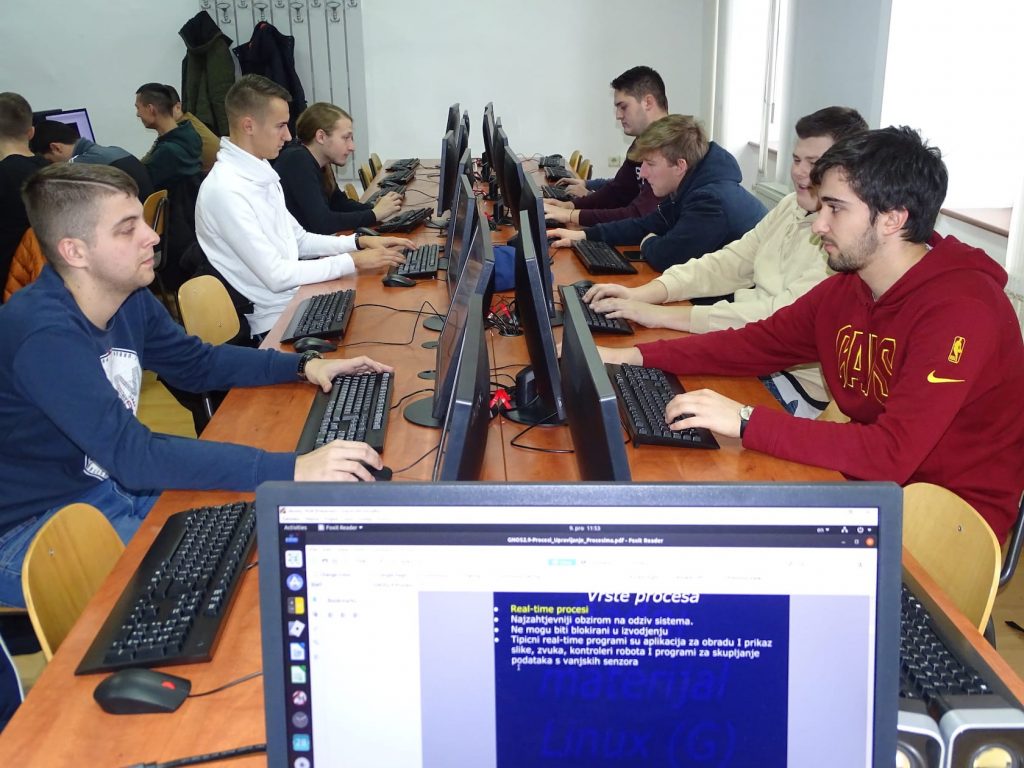The professional graduate study programme in Information Systems is focused on the acquisition of knowledge and skills needed to design, use and maintain information systems which are applied in different fields of computer usage, with a particular emphasis on software engineering.
About the study
The programme is primarily intended for individuals engaged in software engineering and information systems in a broader sense, as well as for those who meet the general and specific admission requirements and aim for professional careers in the design, development, and maintenance of information systems.
Upon completion of the professional graduate study programme, students acquire the knowledge and skills required to work in the areas of development, construction, implementation, and maintenance of information systems.
Professional competences include the use of modern programming tools for structured, procedural, and object-oriented programming (JAVA, PHP, ASP, NET), understanding principles, creation, administration, and maintenance of databases (oracle, mysql, mssql), application of authorization and authentication systems in the development and use of information systems, understanding of systems for ensuring business continuity (disaster recovery).
General competences include the ability to identify, define, and solve engineering problems, use of techniques, skills, and modern engineering tools essential for practice, of the relationship between engineering activities, design, production, marketing, and user needs for products and services, participation in team development, ability to apply knowledge in practice, learn and self-learn, and acquire research skills, ability for critical thinking, decision-making, and acting ethically and responsibly in professional and social contexts.
Learning outcomes of the study programme:
IS1: Evaluate engineering methods and principles in designing information systems and software.
IS2: Critically analyze the principles of information system operations.
IS3: Analyze and present the use of information systems.
IS4: Propose solutions to engineering problems in the field.
IS5: Analyze the functionalities of modern engineering tools essential for practice.
IS6: Design and develop software applications using modern structured, procedural, and object-oriented programming languages.
IS7: Plan the development of information systems based on user needs.
IS8: Propose improvements in data and system security.
IS9: Analyze the impact of IS characteristics on their performance and security.
IS10: Justify one’s views, solutions, and proposals in teamwork.
IS11: Present individual or team-based professional work.
IS12: Apply professional literature and search available information and knowledge bases to solve professional tasks and propose solutions.
